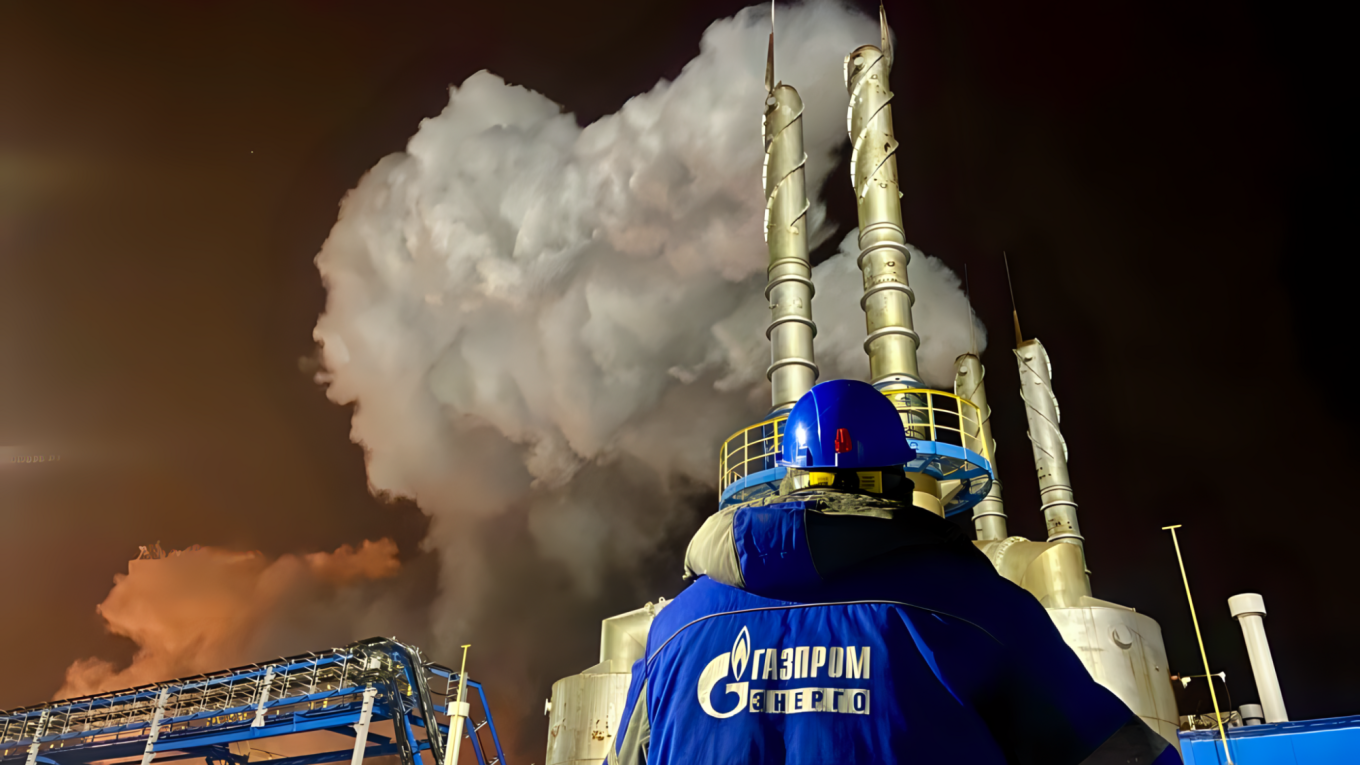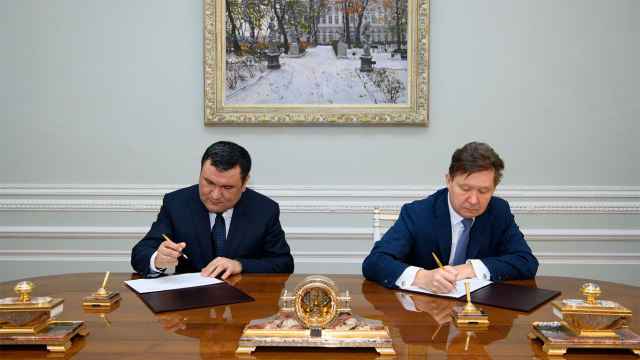Gazprom said it would pump a reduced flow of gas to Europe via Ukraine the day before a transit agreement with Kyiv is set to expire, Reuters reported Tuesday.
The state-controlled energy giant said it would pump 37.2 million cubic meters of gas on Dec. 31, down from 42.4 million cubic meters the previous day, before flows drop to zero at midnight when the five-year transit agreement expires.
Once responsible for 35% of Europe’s gas supply, Russia has seen its market share decimated to near zero following its invasion of Ukraine in 2022 and the EU’s subsequent pivot to alternative suppliers like Norway, the United States and Qatar.
Gazprom, which reported a $7 billion net loss in 2023 — its first annual deficit since 1999 — will forgo nearly $5 billion in annual sales from the Ukrainian route, according to Reuters. Ukraine, in turn, is relinquishing an estimated $800 million in annual transit fees.
Moldova is among the countries expected to be significantly impacted by the end of the transit agreement. The EU candidate declared a state of emergency earlier this month in anticipation of the disruption.
While Moldova has reduced its reliance on Russian energy, the breakaway region of Transnistria continues to receive subsidized Russian gas, fueling tensions. Moldovan Prime Minister Dorin Recean accused Moscow of engaging in “energy blackmail.”
Gazprom will continue to supply gas to Hungary via the TurkStream pipeline in the Black Sea, but Slovakia, another key transit country, could face significant losses as flows from Ukraine halt. Slovak Prime Minister Robert Fico visited Moscow earlier this month to discuss gas shipments with President Vladimir Putin.
The breakdown of the Ukraine route underscores the near-total collapse of Russia’s dominance in Europe’s energy market, Reuters said. Gazprom’s future hinges on pivoting to Asia, where it has sought new buyers in China and India, though these efforts have yet to offset losses in Europe.
A Message from The Moscow Times:
Dear readers,
We are facing unprecedented challenges. Russia's Prosecutor General's Office has designated The Moscow Times as an "undesirable" organization, criminalizing our work and putting our staff at risk of prosecution. This follows our earlier unjust labeling as a "foreign agent."
These actions are direct attempts to silence independent journalism in Russia. The authorities claim our work "discredits the decisions of the Russian leadership." We see things differently: we strive to provide accurate, unbiased reporting on Russia.
We, the journalists of The Moscow Times, refuse to be silenced. But to continue our work, we need your help.
Your support, no matter how small, makes a world of difference. If you can, please support us monthly starting from just $2. It's quick to set up, and every contribution makes a significant impact.
By supporting The Moscow Times, you're defending open, independent journalism in the face of repression. Thank you for standing with us.
Remind me later.






